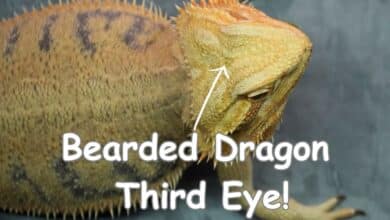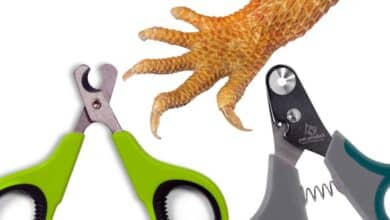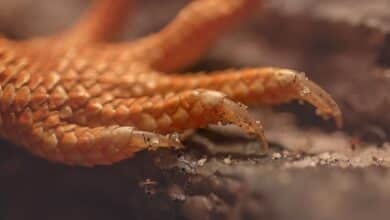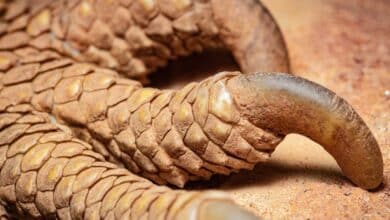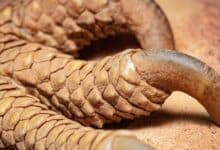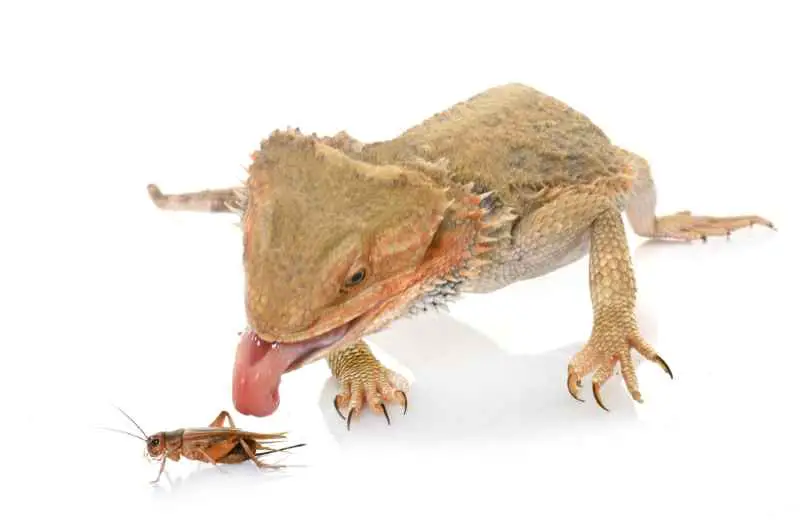All About Bearded Dragon Gulping

Gulping is typical behavior among bearded dragons. That said, you’ll need to keep an eye on your dragon to ensure the gulping isn’t due to anything serious.
Bearded dragons gulp to help prepare to shed their skin. However, it can also indicate a health issue or choking. You’ll want to discuss the behavior with your vet if you have concerns.
In this article, you’ll learn more about why your bearded dragon gulps. Most of the time, it’s nothing serious, but you’ll still need to be aware of the problems gulping can indicate.
Contents
Why Is He Gulping/Moving His Throat?
There are a few reasons your bearded dragon might gulp or move its throat. These include:
- Preparation for shedding
- Metabolic bone disease (or other health issues)
- A possible sign of choking
- Compaction (a digestive health issue)
Usually, your dragon is just preparing to shed their skin. However, if that doesn’t seem to be the case, you’ll want to call your local vet immediately. The sooner you can get your bearded dragon treatment, the better.
Let’s break these different reasons down into more detail:
Shedding
When your bearded dragon gulps, its body expands briefly, which helps them stretch its skin. They’ll do this when they’re preparing to shed. The gulping helps them loosen their skin and makes it easier for them to remove it.
You can help your bearded dragon by making the shedding process smoother for them. You’ll want to increase how often you bathe the dragon. Many pet parents recommend that you increase their bath times to three or four times a week while they shed. Frequent exposure to water gives the dragon the extra hydration they need to make it easier to shed.
So, if the gulping is due to shedding, you’ll notice that your bearded dragon does it occasionally. It shouldn’t be a problem unless your dragon gulps constantly.
Metabolic Bone Disease
If your dragon isn’t shedding but still gulps often, this could be a sign that they have a metabolic bone disease (MBD). It’s a very common illness in bearded dragons, so you’ll want to know how to recognize it.
Improper diets and lighting often cause MBD. When your dragon doesn’t get enough vitamin D, they are at risk of developing this disease. The most common signs of MBD include:
- Excessive gulping
- Swelling or softening of the jaw
- Swelling in hind legs
- Leg tremors
- Weakness
- Crouching or laying down more often
- Lethargy
- Loss of appetite
- Possible seizures
You’ll need to bring your pet to the vet for treatment. The veterinarian will conduct x-rays to check for lowered bone density. They may also perform a blood test. Most treatments include:
- Calcium or vitamin D injections
- Special UVB lights
- Essential changes to their diet
Possible Choking
If you notice sudden, frequent gulping, it could mean that your bearded dragon is choking. Choking can happen when they accidentally swallow substrate material or their food is too large for them. You can prevent choking by not overfeeding the dragon and cutting their meals into small pieces. Then, only offer small amounts of food at one time.
They’re okay if your bearded dragon can still move and breathe. However, you may need to help them clear their throat if they keep choking. Lift the bearded dragon and gently tilt them downwards while supporting them. Most of the time, gravity helps them remove the blockage from their throat.
You may need to open the dragon’s mouth and remove the stuck object yourself. Be very careful not to push it farther in!
Lastly, offer your dragon water or vegetable oil to help them swallow or spit out the blockage. As the dragon drinks, gently stroke their beard to assist them. Once your pet is okay, you’ll want to help them relax with a bath or warm heat lamp.
Compaction
Compaction, or impaction, is another common issue that can make your bearded dragon swallow a lot. This health concern occurs when a bearded dragon becomes constipated for long periods. Make sure to watch for less mobility in your dragon. Many can’t use their back legs when they have this sickness.
Some causes of compaction include:
- Meals that are too large or indigestible for the dragon
- Incorrect temperatures in their environments
- Harmful substrates (dried plant substrates and pellets are risky)
If you notice your pet isn’t walking properly, doesn’t relieve waste often enough, or has a bump on its spine, you’ll need to bring them to a vet. Impaction is a very serious disease in bearded dragons. It can be fatal when you don’t treat them as soon as possible.
What Do I Do for Him?
If you notice that your dragon is gulping very frequently, make sure they aren’t choking first. You’ll need to clear the dragon’s airway immediately if they are choking.
Then, you’ll want to check for signs of shedding. If your dragon isn’t preparing to shed, then call your vet. Your dragon may have MBD or compaction- which are very serious illnesses.
Your vet can detect and treat MBD and compaction. Changing your pet’s diet and giving them a warm bath and tummy massage can help.
Overall, you want to ensure you always give your bearded dragon nutritious food they can swallow and digest well. That way, they won’t have any deficiencies or blockages that can lead to these diseases.
Final Thoughts
To summarize, you don’t need to worry about a bearded dragon gulping most of the time- it’s usually due to shedding. However, you know your bearded dragon better than anyone, so watch for strange behaviors and signs of sickness.
